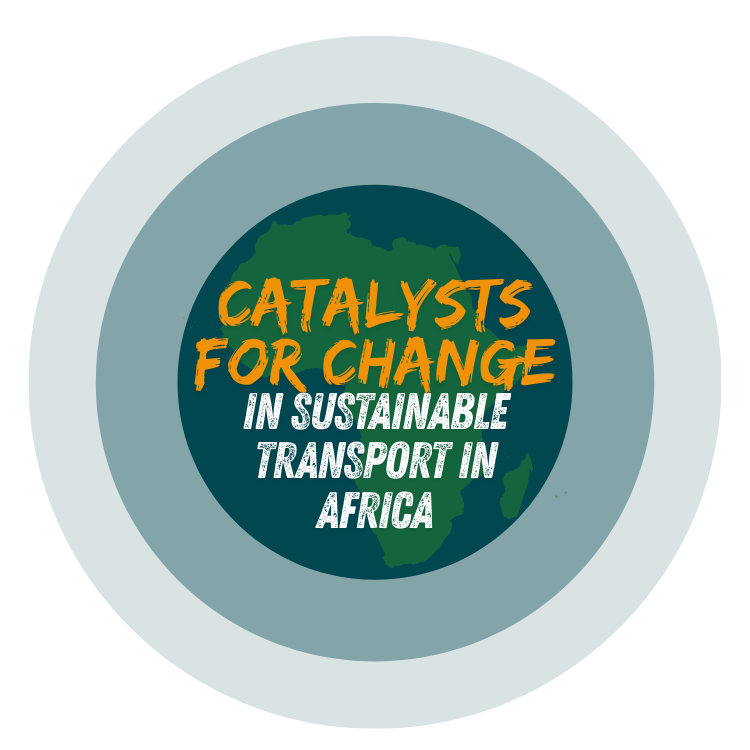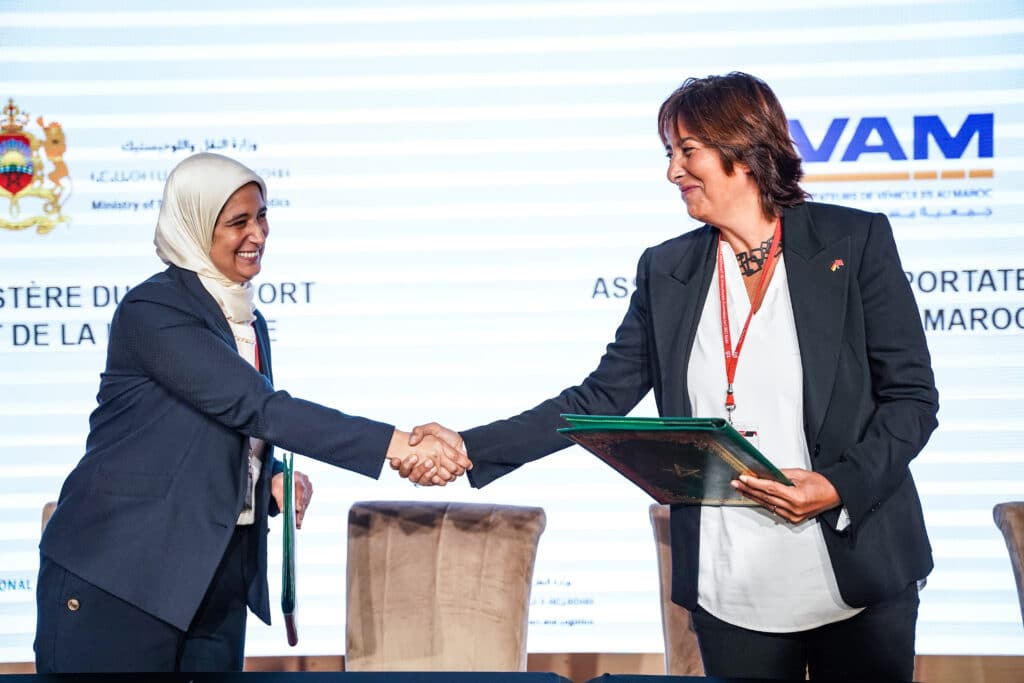
By honouring two Moroccan-German cooperation projects in the field of sustainable mobility, financed by the International Climate Initiative (IKI) from the German government, the Ministry of Transport and Logistics is sending a clear message: this is no longer a time for reflection, but for action.
At a high-level event held in Rabat on 30 April, attended by around a hundred participants from all spheres (ministries, international organisations and the private sector), the Minister of Transport and Logistics, Mohammed Abdeljalil, underlined Morocco’s leading role in transforming transport, which is not only an economic and social issue, but also a climate issue.
One of the major challenges facing the transport sector, particularly the land transport sector, is to reconcile the need to meet the ever-growing demand for mobility of goods and people through the development of infrastructure and services, on the one hand, with the need to reduce the negative externalities associated with pollution, climate change, energy consumption and accidents, on the other.
Mohammed Abdeljalil, Minister of Transport and Logistics of Morocco
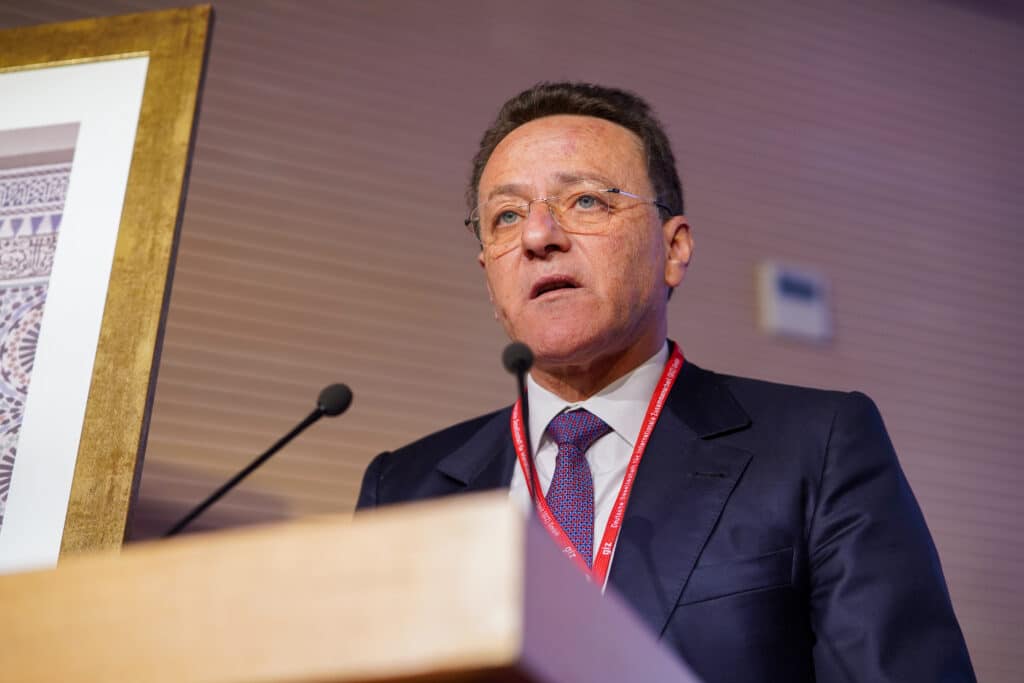
Indeed, the transport sector alone absorbs 38% of final energy consumption, of which road transport accounts for over 96%, and is responsible for almost 30% of greenhouse gas emissions (GHG). In a country that is heavily dependent on fossil fuels (99%) and where the growth of motorisation is estimated at between 5 and 6% per year, accelerating the transition to low-carbon transport is a priority.
Sustainable mobility is at the heart of all our country’s ambitious strategies for economic development and job creation. Its development has a direct impact on industrial production (specially manufacturing) and logistics, as well as on the mobility of people, a key factor for inclusiveness and equity. […] Our public policies must therefore converge towards the common objective of promoting a model of mobility development that is ecologically virtuous, socially inclusive and creates employment opportunities.
Mohammed Abdeljalil, Minister of Transport and Logistics of Morocco
Because facts and figures are indispensable for the development of transport policies that suit the Moroccan context and contribute to sustainable mobility the Ministry of Transport and Logistics has implemented the “Advancing climate strategies in the field of transport in rapidly motorizing countries” (TraCS) project between 2019 and 2023.
This project not only contributed to the inclusion of GHG mitigation measures specific to land transport in the Nationally Determined Contribution (NDC) submitted to the UNFCCC in 2021, but also enabled the Ministry to develop the country’s first sectoral MRV (Monitoring, Reporting, Verifying) system.
For more than a year, a working group made up of representatives from the Ministry and the Moroccan National Agency for Road Safety (NARSA) collected, processed, and analysed more than 18 million lines of data combining registrations and technical inspections of the vehicle fleet databases in Morocco, and then produced an inventory of greenhouse gas emissions from road and rail transport in 2022.
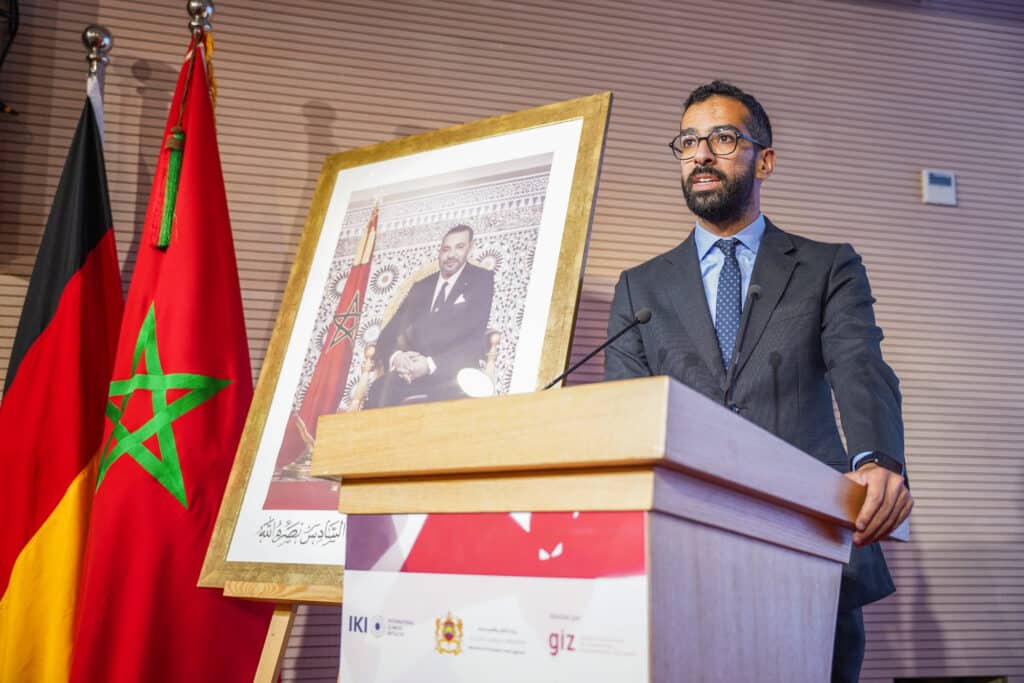
Encouraged by the success of this first experiment and by the commitment of the stakeholders, the Ministry decided to make the work of collecting data and compiling an inventory of emissions from land transport permanent.
This commitment has led to the signing of agreements setting out the terms of cooperation between the Ministry of Transport and Logistics, the Ministry of Energy Transition and Sustainable Development, the Mohammed VI Foundation for Environmental Protection, the National Agency for Road Safety (NARSA), the National Company for Transports and Logistics (SNTL), the National Railway company in Morocco (ONCF) and the Moroccan vehicles’ importers Association (AIVAM).
The signing of these inter-ministerial and inter-institutional agreements commits the parties to working together to share and process data, improve data quality, carry out the periodic inventory of greenhouse gas emissions and monitor the effectiveness of the mitigation measures put in place.
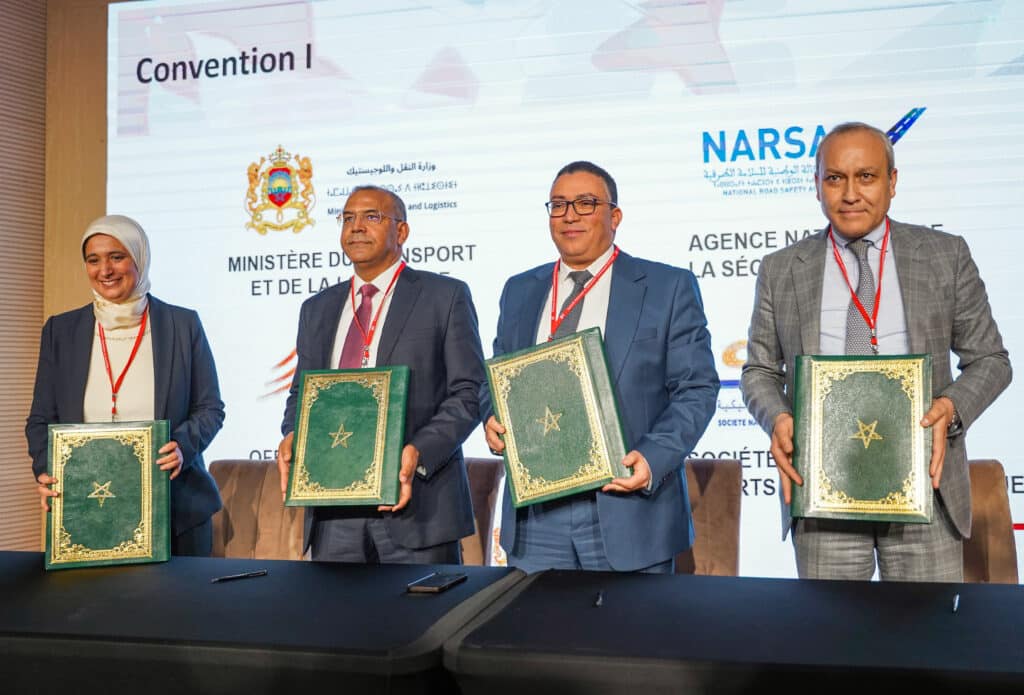
But Morocco’s determination to get things moving doesn’t stop there. The Ministry of Transport and Logistics also officially launched a new project, “Introducing Measures, Pathways, Roadmaps for Optimising Vehicle Efficiency and Electrification” (IMPROVE), which aims to lower the emission rate of vehicles through regulatory and fiscal instruments.
This project is a continuation of the TraCS project, as one of the policies envisaged corresponds to Morocco’s commitment in its NDC: the development of a feebate system – also called Bonus Malus. This is a mechanism to encourage the purchase of new energy efficient vehicles based on CO2 emissions. In its NDC, Morocco has estimated its mitigation potential at 1504 Mg CO2/year by 2030. The project will run until 2026.
You are currently viewing a placeholder content from Youtube. To access the actual content, click the button below. Please note that doing so will share data with third-party providers.
More InformationThe IMPROVE project is implemented by the Deutsche Gesellschaft für Internationale Zusammenarbeit (GIZ) GmbH and is funded through the International Climate Initiative (IKI) of the German Federal Ministry for Environment, Nature Conservation and Nuclear Safety (BMUV). The Advancing Transport Climate Strategies (TraCS) project is implemented by the Deutsche Gesellschaft für Internationale Zusammenarbeit (GIZ) GmbH and funded through the International Climate Initiative (IKI) of the German Federal Ministry for Economic Affairs and Climate Action (BMWK).
 Signing of the implementation agreement for the IMPROVE project between the Ministry of Transport and Logistics and GIZ, ©GIZ Morocco by Othman Zoubeidi
Signing of the implementation agreement for the IMPROVE project between the Ministry of Transport and Logistics and GIZ, ©GIZ Morocco by Othman Zoubeidi

Anne-Sophie Tobar-Malagueno
anne-sophie.tobar-malagueno@giz.de
Visit profile
If you believe that you suffer (potential) negative social and/or environmental consequences from IKI projects, or wish to report the improper use of funds, to voice complaints and seek redress, you can do so using the IKI Independent Complaint Mechanism.
